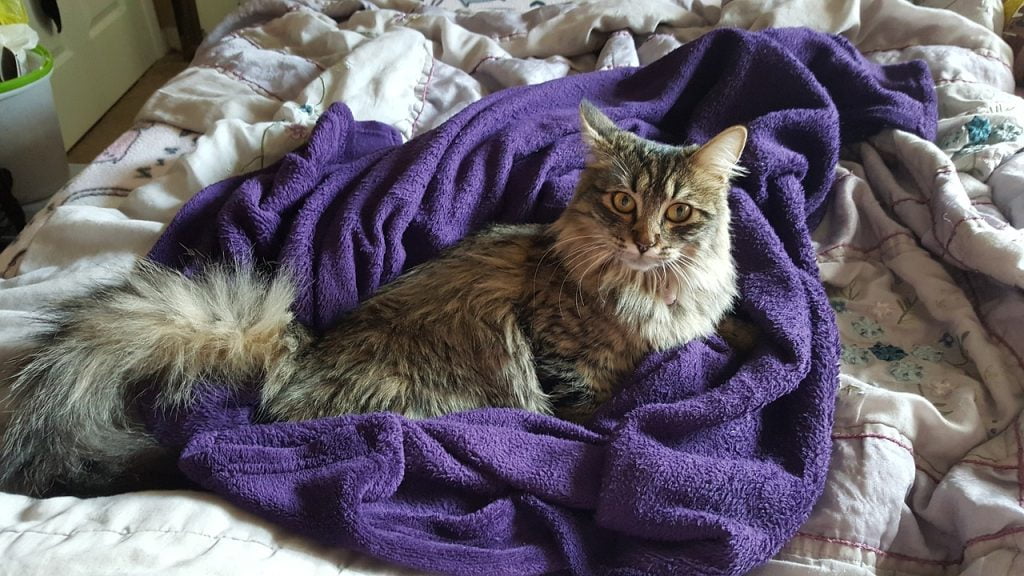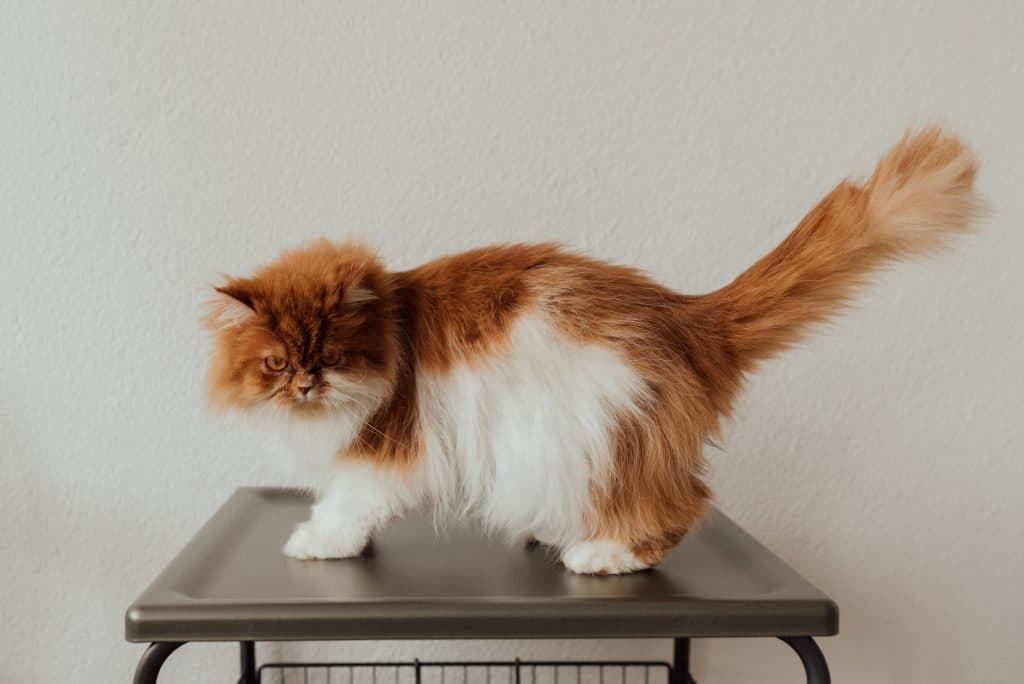Cats hold a special place in our hearts, captivating us with their enigmatic charm. But like humans, our feline friends can experience various health conditions, including heart murmurs. This article will delve into the impact of heart murmur in cats life expectancy. So, let’s uncover the secrets behind heart murmurs and discover what it means for our beloved kitties!
What is a Heart Murmur in Cats?
A heart murmur is an abnormal sound that occurs during the heartbeat cycle. It is caused by the turbulent flow of blood through the heart chambers or the major blood vessels. While heart murmurs can be classified into different grades depending on their intensity, they are generally regarded as signs of an underlying heart condition.
Identifying Heart Murmurs in Cats
Let’s delve deeper into the list-type format to explore detecting a heart murmur in cats and the signs that may indicate its presence. Here are the common symptoms to watch out for and the diagnostic procedures involved:
- Rapid Breathing: If you notice that your cat is breathing more rapidly than usual, it could be a potential indicator of a heart murmur. Keep an eye out for increased respiratory rates, even during periods of rest or minimal exertion.
- Coughing: Frequent or persistent coughing in cats can indicate various respiratory or cardiac issues, including a heart murmur. Pay attention if your cat starts coughing without apparent cause, and consult your veterinarian for an evaluation.
- Reduced Stamina: Cats with heart murmurs often exhibit reduced stamina or become quickly tired during activities that they used to handle effortlessly. They may appear lethargic or reluctant to engage in physical exertion.
- Fainting Spells: In some cases, cats with severe heart murmurs may experience fainting spells or episodes of collapsing. Seek immediate veterinary attention if you observe your cat losing consciousness or collapsing suddenly.
- Veterinary Examination: When you suspect a heart murmur in your cat, the first step is to visit a veterinarian. The veterinarian will listen to your cat’s heart using a stethoscope during the examination. They will listen for abnormal sounds, such as murmurs, gallops, or irregular rhythms.
- Additional Diagnostic Tests: To confirm the presence of a heart murmur and determine its underlying cause and severity, your veterinarian may recommend further diagnostic tests. An echocardiogram (ultrasound of the heart) is commonly used to assess the structure and function of the heart, identify any abnormalities, and evaluate the blood flow.
- Electrocardiogram (ECG): An ECG measures the electrical activity of the heart and helps identify any irregular heart rhythms or abnormalities contributing to the heart murmur. It is often used with other diagnostic tests to provide a comprehensive evaluation.
- Chest X-ray: A chest X-ray can provide valuable information about the size and shape of the heart, detect fluid accumulation in the lungs, and identify other potential causes of heart murmur.
Remember, early detection and proper diagnosis are crucial for managing heart murmurs effectively. If you notice any signs or suspect a heart murmur in your cat, do not hesitate to consult your veterinarian. They will guide you through the necessary steps to evaluate your cat’s heart health and develop an appropriate treatment plan.
By being attentive to your cat’s behavior, seeking prompt veterinary care, and following your veterinarian’s recommendations, you can help ensure the best possible outcome for your feline companion with a heart murmur.

Common Causes of Heart Murmurs
Let’s delve deeper into the different underlying causes of heart murmurs in cats and understand why it is essential to identify them for appropriate treatment and prognosis. Here are the various reasons to consider:
- Congenital Heart Defects: Congenital heart defects are abnormalities in the heart’s structure that are present at birth. These defects can include heart valves, walls, or blood vessels malformations. Cats with congenital heart defects may develop heart murmurs due to the abnormal blood flow caused by these structural issues. The severity of the defect will impact the prognosis and treatment options available.
- Acquired Heart Disease: Acquired heart disease refers to heart conditions that develop over time, usually later in a cat’s life. One common form of acquired heart disease in cats is cardiomyopathy, the thickening or weakening of the heart muscle. This condition can lead to the development of a heart murmur. Other acquired heart diseases include heart valve abnormalities, tumors, or infections.
- High Blood Pressure (Hypertension): High blood pressure can strain the heart and blood vessels, leading to a heart murmur. Factors such as kidney disease, hyperthyroidism, or underlying heart conditions can cause hypertension. Identifying and managing the underlying cause of high blood pressure is crucial to prevent further complications and provide appropriate treatment.
- Hyperthyroidism: Hyperthyroidism is a common endocrine disorder in cats, characterized by the overproduction of thyroid hormones. This condition can have an impact on the heart, causing abnormalities in heart rhythm and function. Cats with hyperthyroidism may develop heart murmurs due to the thyroid hormone imbalance. Treating hyperthyroidism can help improve heart health and reduce the severity of the murmur.
Identifying the underlying cause of a heart murmur in cats is crucial because it directly influences the treatment approach and prognosis. Treatment options can range from medication to manage symptoms, surgical interventions to correct structural abnormalities, or addressing underlying health conditions such as hyperthyroidism or high blood pressure.
The prognosis for cats with heart murmurs varies depending on the cause, severity, overall health, and response to treatment. Some conditions may be managed effectively, allowing cats to live relatively normal lives with appropriate care. In contrast, more severe or progressive conditions may require ongoing monitoring, medication, or specialized interventions to optimize the cat’s quality of life.
Working closely with your veterinarian to identify the underlying cause of the heart murmur is vital for determining the most appropriate treatment plan and understanding the potential long-term outlook for your feline companion. Regular follow-up appointments and ongoing care will help monitor the condition and make necessary adjustments to ensure the best possible outcome.

Heart Murmurs in Cats Life Expectancy
When it comes to life expectancy, it’s important to remember that heart murmurs are not a disease in themselves but rather a symptom of an underlying condition. Therefore, the impact on a cat’s life expectancy depends on the severity and nature of the underlying heart problem.

Treatment Options and Management
Cat heart murmurs treatment focuses on managing the underlying condition and providing symptomatic relief. Medications like diuretics and beta-blockers may be prescribed to alleviate symptoms and improve heart function. Surgery or interventional procedures may sometimes be necessary to correct the underlying defect.

Enhancing Your Cat’s Quality of Life
While heart murmurs can be a cause for concern, there are steps you can take to optimize your cat’s quality of life. These measures can help support their overall well-being and manage the condition effectively:
- Create a Low-Stress Environment: Cats with heart murmurs can benefit from a calm, stress-free environment. Minimize loud noises, sudden changes, and excessive physical exertion. Provide a safe and comfortable space where they can rest and relax without unnecessary disruptions.
- Ensure a Balanced Diet: A nutritious and well-balanced diet is crucial in maintaining your cat’s overall health, including heart health. Consult with your veterinarian to determine the most suitable diet for your cat, considering their specific needs, any dietary restrictions, and the underlying cause of the heart murmur. They may recommend a diet low in sodium or other modifications to support heart function.
- Promote Regular Exercise (within guidelines): Exercise is essential for your cat’s overall health and well-being but should be tailored to its specific condition and limitations. Consult your veterinarian to determine a safe and beneficial exercise routine for your cat. Regular, gentle activity can help maintain muscle tone, promote circulation, and support cardiovascular health.
- Administer Medications as Prescribed: If your cat requires medication to manage the heart murmur or any underlying condition, it is crucial to administer them as your veterinarian prescribes. Follow the recommended dosage and schedule strictly. If you have any concerns or notice adverse effects, consult your veterinarian promptly for guidance.
- Regular Check-ups with Your Veterinarian: Regular veterinary check-ups are essential for monitoring your cat’s heart health and overall condition. Your veterinarian will assess their heart function, monitor any changes, adjust medications if necessary, and provide guidance on managing the heart murmur. Routine examinations, blood tests, and diagnostic imaging may be recommended to monitor the condition’s progression.
- Monitor and Report Changes: Keep a close eye on your cat’s behavior, appetite, breathing patterns, and overall well-being. Any changes should be promptly reported to your veterinarian. Increased respiratory effort, coughing, reduced appetite, or signs of discomfort should not be ignored, as they may indicate a worsening condition or the need for adjustments in the treatment plan.
Remember, every cat is unique, and the management of a heart murmur will vary depending on the underlying cause and the individual cat’s needs. Working closely with your veterinarian and following their guidance is crucial for providing the best possible care and optimizing your cat’s quality of life.
By creating a low-stress environment, providing a balanced diet, encouraging appropriate exercise, administering medications as prescribed, and ensuring regular veterinary check-ups, you can help manage the heart murmur and support your cat’s overall health and happiness.

Conclusion
Heart murmurs in cats may evoke worry and concern, but they are not an immediate death sentence. Understanding the underlying condition, seeking appropriate veterinary care, and adopting a proactive approach can help extend life expectancy and enhance the quality of life for our feline companions. Remember that each cat’s situation is unique, and the prognosis can vary significantly. It is essential to work closely with your veterinarian to develop a tailored treatment plan and monitoring schedule for your cat.


